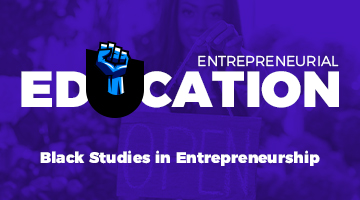Picture the American dream. Imagine a significant portion of our population striving towards it, only to find invisible barriers hampering their progress. For many Black Americans, systemic racism and inequality form these barriers, significantly impacting their economic prosperity.
An Uneven Starting Line
Racism isn’t just an abstract concept—it’s a concrete economic inhibitor that exists across our entire social system – i.e., it’s systemic. It begins with the wealth gap, a disparity glaringly evident at birth. A 2020 Brookings Institution report noted that Black families’ median net worth is ten times less than that of white families. Such inequality not only creates an uneven starting line but makes the entire race to economic freedom a steeper uphill climb for Blacks.
Education and Employment: A Closed Cycle
Education and employment should offer a way out of this economic quagmire. But racism often transforms these gateways of opportunity into cyclical traps. Predominantly Black schools, still suffering from decades of unequal funding, struggle to provide the quality education necessary to compete in the job market.
Likewise, discrimination in the labor market—unconscious bias in hiring or the racial wage gap—continues to hinder economic progress for Black individuals. Unemployment rates for Black Americans are often twice that of their white counterparts, exacerbating the wealth and income gap.
Housing and Redlining: The Ghosts of Discrimination Past
The housing market offers another stark example of the economic effects of racial bias. Discriminatory policies like redlining, though officially outlawed, have left long-standing scars on Black economics. Black families were historically denied mortgages, restricting them to impoverished neighborhoods with fewer resources. The ripple effects continue today, with homeownership rates significantly lower among Black families, hindering their ability to accumulate wealth.
The Invisible Hand That Still Pushes
This overall wealth, education, employment, and housing inequality has created a financial underclass. Black Americans often have less access to credit, capital for business startups, or avenues for wealth creation. The invisible hand of the market, lauded for its potential to elevate individuals, can often feel like it’s pushing down instead.
Disrupting the Status Quo
Addressing these issues requires a concerted, multi-faceted approach. Increased investment in education, stronger employment protections, proactive housing policies, and broader access to credit can all contribute to leveling the economic playing field.
As consumers, we can support Black-owned businesses, helping circulate wealth within the community. As voters, we can elect leaders who acknowledge these systemic issues and are committed to making change.
Systemic racism and inequality have shaped Black economics for generations. It’s time to acknowledge these invisible barriers and work towards a future where the American dream is equally attainable for all. Because every American, regardless of color, deserves to run in a fair race toward economic freedom.






